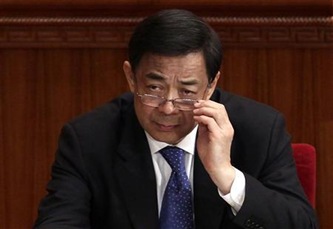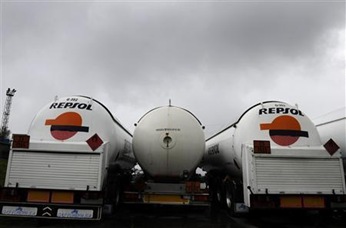A Palestinian delegation handed Israeli Prime Minister Benjamin Netanyahu a letter setting out their grievances on Tuesday, but their prime minister, Salam Fayyad, refused to join them for what would have been the highest-level meeting since 2010.
Netanyahu, who took the letter from top Palestinian negotiator Saeb Erekat and intelligence chief Majed Faraj, promised a written reply in two weeks.
"Both sides hope the exchange of letters will help find a way to advance peace," said a joint statement issued after the meeting in Jerusalem.
The Palestinian letter, from President Mahmoud Abbas, demanded a halt to Israeli settlement construction on West Bank land captured in the 1967 Middle East war and deplored Israel's lack of commitment to the peace process, officials said.
Fayyad had been expected to lead the Palestinian team for what would have been the highest level meeting since formal peace talks between the two sides broke off in 2010.
But he was reluctant to engage with Israel on a day when more than 1,000 Palestinian prisoners began a hunger strike in protest against their conditions in Israeli jails, senior Palestinian officials told Reuters.
His last-minute withdrawal may also cast new light on divisions within the Palestinian political establishment, which has yet to find a strategy likely to lead to Palestinian statehood.
An Israeli official said earlier that Netanyahu would reiterate his call for talks to resume without preconditions, and for a meeting with Abbas.
The letter could be a basis for the Palestinians to renew their unilateral push for international recognition of statehood at the United Nations, an effort suspended last autumn amid stiff opposition from Washington and Israel.
WATERED-DOWN VERSION
Before the meeting, Palestinians said the letter would accuse Israel of failing to carry out its obligations under the 2003 "road map" agreed by both sides, which includes a halt to settlement activity on captured West Bank land.
Palestinian officials said the letter was a watered-down version of previous drafts which suggested the Palestinian Authority, run by Abbas, would dissolve itself or sever ties with Israel if there was no progress.
Foreign governments have viewed the letter with apprehension and urged the Palestinians not to use threatening language, but also welcomed the prospect of a rare high-level Israeli-Palestinian meeting.
The Palestinians may take their case for statehood to the U.N. General Assembly, having failed to secure backing at the Security Council in 2011, though only the Security Council - where the United States has veto power - has the authority to grant full U.N. membership.
U.S.-sponsored peace talks froze in late 2010 after Netanyahu rejected Palestinian demands that he extend a partial settlement construction freeze he had imposed, at Washington's behest, to persuade the Palestinians to take part in talks.
About 500,000 Israelis and 2.5 million Palestinians live in the West Bank and East Jerusalem, areas Israel captured in the 1967 war. Palestinians want the territory for an independent state along with the Hamas-controlled Gaza Strip.
The settlements are considered illegal by the International Court of Justice, the highest U.N. legal body for disputes.
Israel cites historical and Biblical links to the West Bank and says the status of settlements should be decided in peace negotiations.
(Additional reporting by Ali Sawafta; Editing by Tim Pearce)
Reuters







